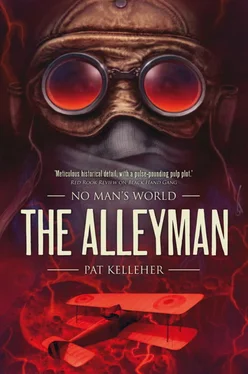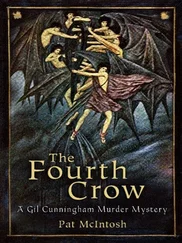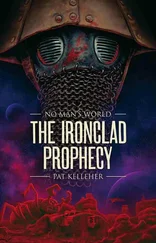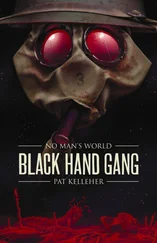There was no sign of any chatts, although shards of a chatt’s clay backpack lay strewn about the bay and an electric lance lay against the firestep. Everson jerked his head and Hobson sent a couple of men peering over the revetments.
“All clear, Sarn’t,” they reported.
Everson stepped into the fire bay.
“What happened here?” asked Everson urgently.
He noticed the Signals brassard on his arm. The NCO looked up. It was Corporal Riley.
“Sorry, sir,” said the NCO with a disarming shrug. “Didn’t mean to alarm you. Just an accident, sir. Tonkins here’ll be all right,” he said. The signaller’s fit seemed to be passing. The Corporal held him, all the while talking to him in a low voice. “You’ll be all right, lad.”
“Stretcher bearer!” Everson hollered.
“No, it’s all right, sir. He’ll be right as ninepence shortly. It’s not the first time.”
Everson looked at Hobson, who dismissed the soldiers back to their posts. He turned his attention to the fusilier on the ground. His tone softened a touch. “What do you mean, it’s not the first time? What’s wrong with him?”
“One moment, sir.” The corporal called out. “Buckley!”
A soldier swept back the gas curtain, stepped smartly out and saluted the Lieutenant. The sandy-haired lad had shiny red cheeks that looked as if they’d been polished, like an apple. “Sorry, sir. Didn’t see you there.”
“It’s all right, Buckley,” said the Corporal. “Give me a hand with Tonkers here.”
Buckley helped the Corporal get Tonkins to his feet and the pair half-dragged, half-carried the dead weight of the still twitching Fusilier into the dugout.
Corporal Riley reappeared, holding the gas curtain aside. “If you wouldn’t mind, sir?”
Everson and Hobson entered the dugout. It was crammed with crates and boxes of stores. The place served as office, workshop and storeroom for the few signallers that had been stranded with them. The three men from Signals kept the telephone and heliograph communications working with the observation posts. Three more were up on the Hill OP.
Large reels of copper wire lay against the walls, like huge cotton bobbins. There were lengths of cable, batteries, boxes of signal flares and several heliograph machines on closed tripods. In the corner lay a collection of semaphore flags. On a bench, several wooden-boxed field telephones sat in various states of disassembly, and an assortment of salvaged Morse code keys lay amidst scattered screwdrivers, wire cutters, wire strippers and other tools. However, what caught Everson’s eye was the untidy heap of the chatt clay backpacks and electric lances. Some were broken, some merely cracked, and quite a few were intact, although they were in marked contrast to the ones that stood neatly against the opposite dirt wall.
Tonkins lay on a rude bed in an adjoining room. He seemed more peaceful now. The spasms and twitches had stopped.
“Corporal Riley, just what the hell is going on? What just happened to Tonkins?”
Riley cleared his throat. “What do you know about telephony, sir?”
“That it’s a damned nuisance when the wires get shelled or cut.”
Riley’s cheeks reddened. “Tell me about it, sir. We’re the ones who have to go out and fix it. Only just finished repairing the lines after that damned mutiny. ’Scuse my French, sir.”
“Riley,” said Everson, beginning to lose patience. “What have telephones got to do with that chatt electric lance out there?”
“Well as far as we know, the electric lances are charged by the chatts themselves, kind of like an electric eel. They generate their own charge. The clay pack is kind of like a battery, storing and amplifying this charge, which they release through the lance.”
“And the field telephones?”
Riley picked up a wooden box and sat it on the bench with a thump. “A field telephone, sir. Type C Mark II, using two cells, electric, dry, charged by a magneto via the crank handle.
“We managed to recover a lot of these here backpacks after the chatt siege, and Tonkins there said, ‘well if all they need is a charge, why can’t we just fit ’em with a magneto?’ He’s been tinkering all week, and we think we’ve got it licked.”
“Licked?” Hobson nodded toward Tonkins. “You call that licked?”
“Oh, aye, we’re learning all the time.”
“And what exactly have you learnt this time?” asked Everson.
“This time?” Riley rubbed the back of his neck as he gave it some thought. “Not to connect a wire straight into the conductive slime, for one. And if you do, wear gum boots, feet, for the use of.”
Riley picked up one of the smooth crimson clay backpacks. It had a number ‘5’ scratched onto it. Everson glanced around. He couldn’t see numbers one to four; although he had a suspicion that number four lay outside in pieces. The clay container was curved in the inner surface to sit flush with a scentirrii carapace, but Riley had rigged it with some 1908 Pattern leather webbing and empty sandbags for padding, for a more human fit. Near the top of the clay container, inserted in a carved round hole, was a crank handle Everson recognised as coming from a field telephone.
“Buckley, come here, I need you,” said Riley.
Buckley shot a nervous glance at the prostrate Tonkins.
“Never mind him, lad. Probably picked up a cracked one. You’ll be all right if you wear gum boots for the test.”
“Will he?” asked Everson confidentially.
“Probably,” said Riley with a shrug. “Anything has to be better than earthing through bleedin’ Army-issue hobnailed boots.”
“Hmm.”
A sour-faced Buckley picked up a pair of trench waders and pulled them on before lifting up and shouldering the backpack. They had reconnected the electric lance to it with a length of rubber-insulated cable in a braided hessian sheath.
Riley picked it up and handed it to him, then bent forward, inspected the backpack and tugged on the webbing. “You’ll do,” he said finally, giving him a shove through the gas curtain.
“After you, sir,” he said with a sweep of his arm. Everson ducked his head and stepped out into the trench. Buckley waited, holding the lance awkwardly. Hobson joined them and Riley brought up the rear smartly, stepping over to Buckley and standing behind him.
“If you wouldn’t mind, gentlemen?” he said, indicating that the officer should take cover. Everson and Hobson stepped back by the sandbagged traverse.
“Well, on guard, lad, on guard!” said Riley, noting Buckley’s less than enthusiastic posture.
Buckley took a step forward, taking a stance as if the lance were a rifle and bayonet. Riley tapped Buckley once on the shoulder and began to wind the magneto’s crank handle that now protruded from the clay pack. A quiet whirr built as the spindle inside the magneto revolved faster and faster. For a moment, it seemed as if nothing would happen. A nervous Buckley fidgeted as he gripped the lance.
Everson and Hobson exchanged concerned glances.
Riley gritted his teeth and wound the handle furiously a while longer. Then he let go and tapped Buckley on the shoulder. Twice. This time, a brilliant blue-white arc of energy blasted out across the fire bay, exploding against the far sandbag traverse. The sandbags erupted. Scorched, shredded hessian and dirt showered down on them.
When the dust settled, Buckley was still standing and the chatt device was still in one piece.
Riley turned and grinned. “Well, that went better than expected, eh?”
WHEN THE BATTLEPILLAR reached the edge of the forest, the driver would go no further. The Padre, Nurse Bell and Chandar dismounted and, under the chatt’s guidance, proceeded on foot. From here on in, they were on their own.
Читать дальше












